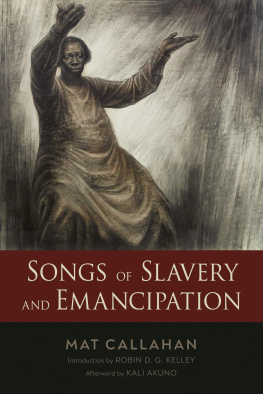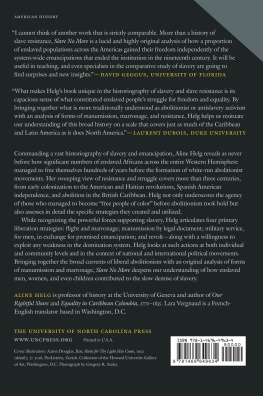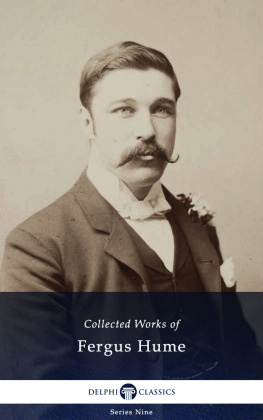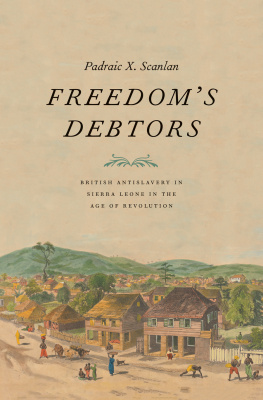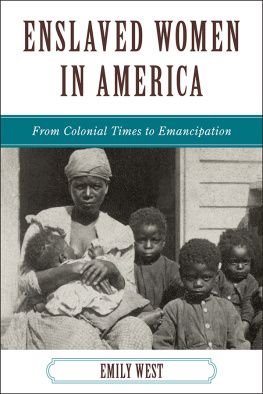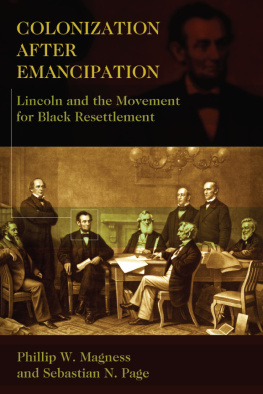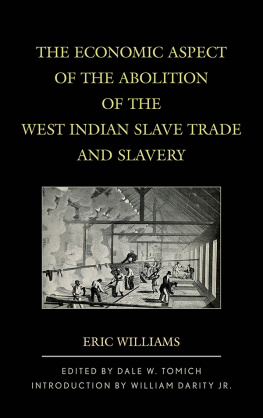Published by Louisiana State University Press
Copyright 2013 by Louisiana State University Press
All rights reserved
Manufactured in the United States of America
First printing
DESIGNER: Michelle A. Neustrom
TYPEFACE: Ingeborg
PRINTER: McNaughton & Gunn, Inc.
BINDER: Dekker Bookbinding
LIBRARY OF CONGRESS CATALOGING-IN-PUBLICATION DATA
Fergus, Claudius K., 1950
Revolutionary emancipation : slavery and abolitionism in the British West
Indies / Claudius K. Fergus.
p. cm.
Includes bibliographical references and index.
ISBN 978-0-8071-4988-1 (cloth : alk. paper) ISBN 978-0-8071-4989-8 (pdf) ISBN 978-0-8071-4990-4 (epub) ISBN 978-0-8071-4991-1 (mobi) 1. SlaveryWest Indies, BritishHistory19th century. 2. Slave tradeWest Indies, BritishHistory19th century. I. Title.
HT1093.F47 2013
306.3'6209729dc23
2012027976
The paper in this book meets the guidelines for permanence and durability of the Committee on Production Guidelines for Book Longevity of the Council on Library Resources.

This study is dedicated to my mother, Stella Bouville.
PREFACE
T he intellectual controversy over Britains abolition of its transatlantic slave trade and colonial slavery is well known; a brief comment on some of the seminal contributors to the debate puts the current study into perspective. Given the modern Caribbeans proud tradition of radical intellectualism, it is hardly surprising that radical Pan-Africanism under the influence of international socialism of the 1930s accentuated attacks against the hegemony of an imperialist historiography that silenced diaspora Africans as agency in the history of the region and glorified Christian morality over economic imperatives in the regeneration of empire. The best-known Anglophone flag bearers of the emerging nationalist historiography, C. L. R. James and Eric Williams, collectively invalidated the Quashie portraiture of enslaved Africans and iconic humanitarian abolition. Although published in 1944, Williamss epochal Capitalism and Slavery was truly a product of the revolutionary 1930s. Notwithstanding earlier stirrings in other scholarly quarters, Capitalism and Slavery was embryonic to the dichotomy in the historiography of abolition. Williams transferred to the study of British abolitionism a Hegelian-Marxist dialect first applied to Jamess Black Jacobins (1938). Since the earliest responses to Capitalism and Slavery, the controversy over the transformation of Britains old regime of sugar, slavery, and slave trading has been polarized between the prerogatives of economic determinism and the impulse of moral imperium. Attempts to close the ideological gap have considerably enriched the study of Atlantic history, but so far, these pedagogies have defied reconcilement.
The formal marriage of moral imperium and abolitionism dates back to Thomas Clarksons History of the Rise, Progress and Accomplishment of the Abolition of the African Slave Trade by the British Parliament (1808), its timely publication an epitaph to the general Abolition Act and a glorification of the Abolition Society. Moral imperium defined the historiography of abolitionism throughout the nineteenth century as a triumph of white, Anglo-Saxon Protestantism. The Clarkson-Klingberg-Coupland combination continues to sway neo-imperialist scholars, among the most influential of whom have been Roger Anstey, David Brion Davis, and Seymour Drescher, a triad that consciously complement each other.
The modern historiography of subaltern agency in British emancipation is also rooted in Capitalism and Slavery, though unmistakably inspired by The Black Jacobins. Williams concurs with James on the dominant theme of resistance and the impact of its cataclysmic moments in Jamaica, Demerara, and Haiti on the consciousness of colonials and metropolitans alike. Following in Jamess footsteps, Williams strongly advocates a pivotal role to the enslaved in their own emancipation. More particularly, he positions the Baptist War as the final nail in the coffin of British colonial slavery; his conclusion, Emancipation from above, or emancipation from below. But EMANCIPATION, has imprinted the historiography of subaltern antislavery. Yet, he concludes, the Negroes had been stimulated to freedom by the development of the very wealth which their labor had created. Thus, Williamss logic remains quintessentially economic determinism.
The current study is conceived wholly within the subaltern but differs centrally from Jamess and Williamss perspectives. It interprets the struggle for freedom as a reaction to enslavement, regardless of the economic fortunes of the colonies. In this regard the biographies of emancipated Africans and other African-descended contemporaries provide invaluable lessons and are liberally cited in this study. The work also incorporates an African-centered worldview into the narrative of resistance, enriching the literature on the African experience during the slavery era. Among more recent scholars the work of Richard Hart deserves special mention. From his own admission he began to articulate the main theme of his major work, Slaves Who Abolished Slavery, since about 1940 and thus stands shoulder to shoulder with James and Williams in advancing a new subaltern historiography of abolitionism. Operating within the environment of the new nationalist upsurge of the 1930s, all three scholars were unashamedly political while adding substance to a new scientific history of colonial slavery and the Atlantic world.
The current monograph grew out of my doctoral work at the University of the West Indies, which argued that Britains abolition of its Atlantic slave trade and African emancipation were key strategies in the reconstruction of its West Indian colonies in the aftermath of Jamaicas Tackys War of 1760, the first major slave insurrection in the Americas.
The study is partly located within the economics of abolition and emancipation, though radically shifting the focus from arresting economic decline of the colonies to arresting their insecurity sustained by revolutionary emancipationism. The rejection of revolutionary emancipationism as the primary agency in the abolition of the slave trade enjoys a curious consensus among historians, regardless of ideological persuasion. Several cases underscore this verdict. Anstey contends that the threat to security from continuing to import captives from Africa and the imperative of cheaper labor, which made Creoles more cost-effective than native Africans, were less than compelling factors in abolition and definitely not provable.
Against this accumulated rejection of the primacy of security, and thus the pivotal role of revolutionary emancipation in British abolitionism, the current study demonstrates that the plantocracys psychopathic fear of Africans and the dread of revolutionary emancipation by British abolitionists were fundamental to the selection of reform strategies by colonials and metropolitan abolitionists alike. Among these strategies the uppermost priority was the search for security through abolition of the slave trade and the complete creolization of labor. The added-on imperative to make plantation labor efficient informed common concerns by both metropolitans and colonials over the elimination of some of the most dehumanizing and cruel practices of plantation slavery, especially against women.


